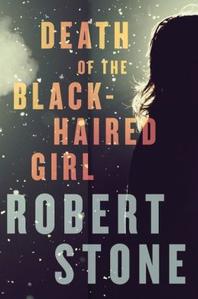

While Stone's plot may sound a bit thin, his characters are thick with their own stories. The spurned Maud finds little help from her roommate Shell, a talented actress with a crackpot, abusive ex-husband. The school counselor, ex-nun Jo Carr, can't quite connect with Maud either; she has her own nightmare visions after years nursing the Indians of South America. Her father is a last resort. An emphysematous alcoholic ex-cop who struggles to drag his oxygen along and stash his booze out of sight, Eddie is too full of self-pity and grief over the loss of his wife to help his daughter.
Angry with Brookman and the world, Maud writes an inflammatory campus newspaper story against picketing anti-abortion protestors. When Maud is killed by a reckless hit-and-run driver while shouting down Brookman outside his cozy faculty house, Stone's plot shifts into crime novel territory. Was the driver a vindictive anti-abortionist? Did Brookman push her into the path of the car? Can the local town cops investigate without prejudice against the privileged academics?
Death of the Black-Haired Girl is another masterful glimpse at the indifference of the universe. As with all Stone's fiction, the complex characters are all wounded, but each has his or her own forgivably human story. When Jo tries to understand why everyone around Maud so desperately wants her death to make sense, a colleague answers: "Because people always want their suffering to mean something." For 50 years, Robert Stone has been finding new stories to help us find that meaning, whether it is there or not. --Bruce Jacobs
Shelf Talker: Through the story of a professor-student affair at a small New England college, Stone continues his search for compassion and meaning in a world with too little of each.

